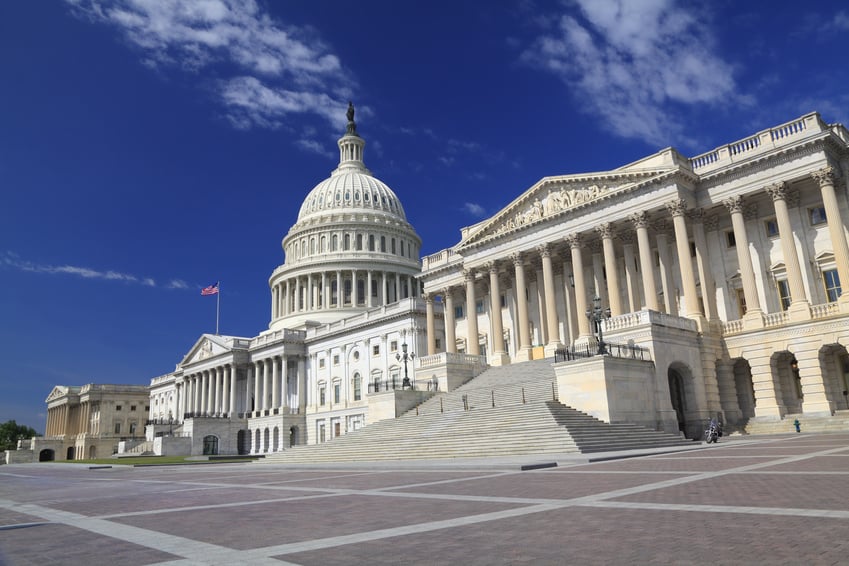In brief
President Joe Biden’s omnibus spending package included three pieces of new antitrust legislation: (1) the Merger Filing Fee Modernization Act; (2) the State Antitrust Enforcement Venue Act; and (3) the Foreign Merger Subsidy Disclosure Act.
In depth
1) Merger Filing Fee Modernization Act
The Merger Filing Fee Modernization Act will alter filing fees for transactions requiring antitrust review under the Hart-Scott-Rodino Act (“HSR Act”). The HSR Act requires merging parties to provide notice to the Federal Trade Commission (“FTC”) and Department of Justice (“DOJ”) prior to closing certain transactions, generally those that have a nexus to the US and a transaction value over a minimum size, currently USD 101 million.
The new fee structure will reduce filing fees for smaller transactions, while significantly increasing fees for the largest ones. At least in part, the new structure is intended to increase funding for the FTC and DOJ. Senator Amy Klobuchar (D-MN), a supporter of the legislation, remarked: “We cannot expect our antitrust enforcers to take on the most powerful companies the world has ever known with duct tape and Band-Aids. By restructuring outdated merger filing fees, our bipartisan legislation will enable Congress to get much-needed resources to our antitrust enforcers so they can protect competition.”
The Merger Filing Fee Modernization Act replaces the current three-tiered graduated fee schedule with the following six tiers—that have higher fees corresponding to increasing transaction values:
| Transaction Value | New HSR Filing Fee | Current Filing Fee |
| Over USD 101 million but under USD 161.5 million | $30,000 | $45,000 |
| Over USD 161.5 million but under USD 500 million | $100,000 | $45,000 – $125,000 |
| Over USD 500 million but under USD 1 billion | $250,000 | $125,000 |
| Over USD 1 billion but under USD 2 billion | $400,000 | $125,000 – $280,000 |
| Over USD 2 billion but under USD 5 billion | $800,000 | $280,000 |
| USD 5 billion or more | $2,250,000 | $280,000 |
IMPACT
The Merger Filing Fee Modernization Act’s impact will vary depending on the value of the transaction. For many transactions, particularly those valued under USD 1 billion, the impact will be relatively small, and filing fees may be lower than they would be under the current schedule.
For larger transactions, however, filing fees will increase significantly, almost as much as ten-fold for transactions valued over USD 5 billion. While the acquiring party still remains responsible for payment of the applicable filing fee by statute, these increased fees likely will result in more attention and negotiation around the antitrust risk-shifting provisions in transaction agreements. In particular, the new fee burden may make fee-sharing agreements more prevalent for large transactions. Moreover, the higher filing fees may dissuade parties from submitting notifications on the basis of anything short of a definitive agreement.
Notably, the filing fee amounts will be adjusted annually along with the transaction value thresholds, which typically happens in February or March. The new fee structure will take effect in 2023, after the FTC’s Premerger Notification Office, which administers the HSR Act, posts the updated filing fees and the related changes to reporting and payment requirements. The specific implementation date is not yet available.
2) State Antitrust Enforcement Venue Act
The State Antitrust Enforcement Venue Act will prevent defendants from transferring parallel antitrust claims brought by state attorneys general into a single district. Under current law, when state Attorneys General (“AGs”) bring antitrust claims in federal district courts in their home states related to similar conduct, defendants may request that the Judicial Panel on Multidistrict Litigation (“JPML”) transfer these claims into a single federal district court for common pre-trial proceedings. Under the new law, defendants would not be able to request JPML transfer of state AG antitrust claims, and thus may need to litigate related state AG cases separately in each state AG’s chosen venue.
IMPACT
The State Antitrust Enforcement Venue Act will make litigation more complex and costly for large companies defending antitrust litigation brought separately by multiple state AGs. Specifically, companies will need to closely coordinate litigation teams across numerous states on varying procedural timelines.
Beyond the burden and expense of managing multiple duplicative lawsuits in different courts, the legislation also increases the risk of inconsistent rulings by separate district courts on similar issues in related cases.
3) Foreign Merger Subsidy Disclosure Act
The Foreign Merger Subsidy Disclosure Act will require companies filing pre-merger notifications that have any subsidies from a “foreign entity of concern” to include notification of those subsidies in the filing. “Foreign entity of concern” is defined under 42 USC. 18741(a), and includes China, Iran, North Korea, and Russia as well as other entities, or specific persons.
IMPACT
The Foreign Merger Subsidy Disclosure Act will require antitrust advisors to perform additional diligence when filing merger notifications. Counsel will need to confirm whether any foreign entity has subsidized the proposed transaction and if so, whether the entity is of concern within the meaning of 42 USC. 18741(a). This likely will require consultation with trade or sanctions experts to ensure proper identification of any entities that may require disclosure.





